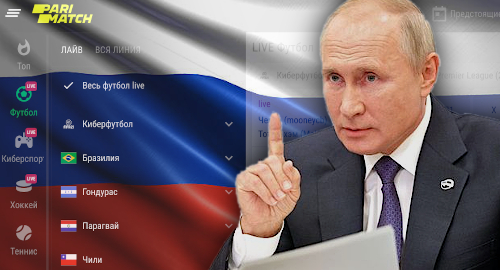
Russian President Vladimir Putin has officially signed legislation calling for a dramatic overhaul of the country’s online sports betting market.
On Wednesday, Putin signed a raft of laws imposing stricter oversight of Russia’s internet, including authorizing the Roskomnadzor telecom watchdog to block online resources deemed to be ‘discriminating’ against Russian media (aka Facebook, Twitter and YouTube), while also requiring biometric information from customers seeking to access certain financial and public services.
But for Russian bookmakers, the focus was on Putin signing a bill that lawmakers approved earlier this week calling for the creation of a Unified Gambling Regulator and the abolition of the two Self-Regulatory Organizations (SROs) that previously represented locally licensed betting interests.
The bill also calls for the establishment of a single centralized payment processing hub, through which all Russian online betting must flow. This hub will replace the two existing payment hubs run by the two rival SROs, and will be controlled by a single private company.
The identity of this private processor has yet to be made public (but has most assuredly already been fixed, given the speed with which this legislation advanced). Whoever it is, they will have access to virtually all data involving online betting transactions in Russia.
This new hub will be responsible for withdrawing 1.5% of the value of every individual wager, regardless of whether the match in question involves a Russian sports federation or a foreign competition such as the English Premier League. Funds raised by this tax will supposedly help fund Russian sports activity, although bookmakers are skeptical that the bulk of the proceeds will reach their stated beneficiaries.
Previous drafts required bookmakers to contribute a minimum RUB5m per quarter to each Russian sports federation, but this was scrapped when bookmakers warned that they’d stop offering markets on all but the major Russian sports to avoid having to pay RUB20m per year to a Russian mumblety-peg league.
Instead, regardless of their turnover, each Russian bookmaker will be required to ante up a minimum payment to sport of RUB30m (US$403k) per quarter, adding around $1.6m to bookmakers’ annual nut. Russia’s larger bookies may be equipped to absorb this hit, but some market minnows are expected to follow the lead of VulcanBet and cease their Russian operations until something resembling sanity is restored.
The law was officially published online following Putin adding his signature, starting a 270-day countdown until all of the new rules take effect.
In what may or may not be coincidental timing, Russian-licensed bookmaker Parimatch – which usually ranks fifth in site traffic among Russia’s 21 licensed bookmakers – announced that its vice-president Ruslan Medved would assume the CEO role as of January 1, 2021.
Current CEO Dmitry Sergeyev, who has held the role since May 2019, will now head up Parimatch operations in key regions of the Commonwealth of Independent States (the republics of the former Soviet Union). Sergeyev wished Medved well, saying the new CEO has “everything he needs to achieve the most ambitious goals.” Everything, that is, except a government that doesn’t view the betting industry simply as a fat cow in need of milking.